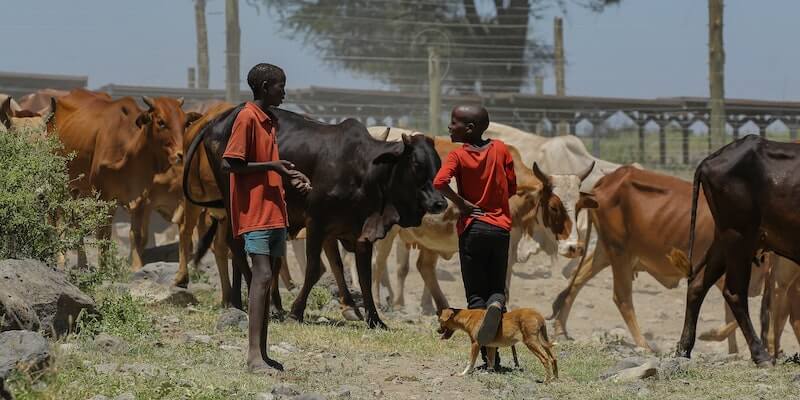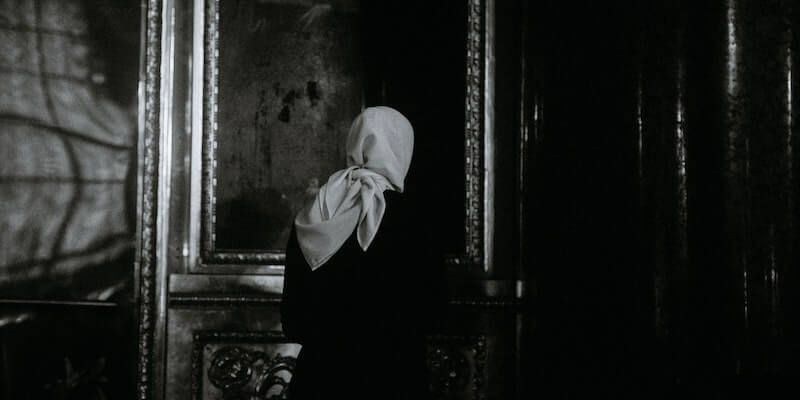Things Fall Apart by Chinua Achebe was published in 1958, a complex novel that talks about traditional or the life before colonisation and then moves onto the life post colonisation. This drastic shift in lifestyle and belief system reveals some profound confusion and eye opening situations. The troubling atmosphere where the belief system of the people of Umuofia is shaken until a point which leads to a war like situation.
Short Summary of Things Fall Apart
Things Fall Apart by Chinua Achebe is a novel that explores the life of the people of Umuofia pre and post colonisation specifically through the character of Okonkwo the powerful wrestler.

The beginning of the novel is dominated by the character Okonkwo and his peculiar relationship with his family and the non-biological son Ikemefuna. The terrible temperament of Okonkwo often leads him to lose his calm.
Later in the novel he kills a sixteen-year-old son of Ezeudo’s son as a result he was sent to exile. Upon his return the entire Umuofia is changed under the influence of the ‘White Men.’ He regrets the situation, and after a severe war-like scenario Okonkwo commits suicides.
Summary of Things Fall Apart by Chinua Achebe Chapter by Chapter
- Chapters 1-5
The novel begins in a pre-colonial atmosphere with the character of Okonkwo, from Umuofia, a powerful and the greatest wrestler among the nine villages. He is seen to observe hatred in his heart for his lazy and unsuccessful father. Unlike his father he was the most hardworking man who has also successfully established himself as a strong man.
- Chapters 6-10
During these chapters we learn that the relationship between Okonkwo and Ikemfuna grows like a father-son relationship. And soon the Oracle decrees the death of Ikemefuna, and gives special instruction to Okonkwo to not take part in the killing.
- Chapters 11-15
Ezinma the daughter of Okonkwo’s second wife Ekwefi is called by the oracle. Both Okonkwo and Ekwefi spend their days in sadness and worry. We learn that Okonkwo has accidentally kill Ezeudo’s sixteen year old son. He along with his family is sent to exile. Later on the family shifts to Mbanta and survives with the money profited from the Yams.
- Chapters 16-20
The missionaries or rather the colonisers have gradually made their way into the lives of the clan. Okonkwo witnesses how his native place has changed, when he visits with the intention of wedding her daughters off. The white people have already begun preaching their religion “christianity” it is when Okonkwo enters he begins his counter.
- Chapters 21-25
Okonkwo is seen to be regretting looking at his people and situation. Soon the communal disharmony and war like situation is aroused by the unduly spread o Christianity and enthusiasm of the converts. Church is burned down, and the final unfortunate suicide of Okonkwo ends the novel.
Themes of Things Fall Apart
“Things Fall Apart” by Chinua Achebe is a novel that explores numerous themes at different stages of the novel. Some of the major themes are the clash of cultures, traditions, and values between the Igbo people of Nigeria and the colonial forces that sought to dominate and exploit them by spreading Christianity.
Throughout the novel, Achebe explores the themes of power, masculinity, pride, identity, and the importance of community. He also examines the impact of colonialism on the Igbo people’s sense of self, their way of life, and their beliefs.

The novel highlights the complexities of cultural exchange, the dangers of intolerance and prejudice, and the cost of resistance against an overpowering force.
It offers a nuanced and empathetic portrayal of a rich and diverse culture, while also exposing the injustices and inequalities that arise when one culture seeks to impose its values on another.
Ultimately, “Things Fall Apart” is a profound meditation on the human experience, the nature of power, and the enduring resilience of the human spirit.
Characters of Things Fall Apart
The characters of Things Fall Apart add life into the novel. The protagonist, Okonkwo, is a complex character driven by his intense desire to succeed, fueled by his fear of being seen as weak like his father. He is proud, ambitious, and fiercely loyal to his tribe’s customs and traditions, but his stubbornness and quick temper often lead to tragic consequences.
Nwoye, Okonkwo’s son, is a more introspective character, who struggles to find his own identity and sense of belonging amidst the changing world of Umuofia.
The women of Umuofia, including Okonkwo’s wives and daughter, also play significant roles in the story, despite the patriarchal nature of the society they live in. They are strong, resourceful, and capable of standing up to their male counterparts when necessary.
Achebe also includes memorable secondary characters, such as the wise elder Ezeudu, the cunning and manipulative Okonkwo’s uncle, and the zealous Christian missionary Reverend Smith.
Each character represents different aspects of the complex society and culture especially the Character of Okonkwo in Things Fall Apart, Achebe through him interweaves a remarkable story and creates a powerful and moving narrative.
Things Fall Apart Analysis
The analysis of Things Falls Apart can be done by talking about the complex topics that are expressed throughout the novel. For example, the role of religion and missionaries, portrayal of Igbo culture, friendship between Nwoye and Ikemefuna, and rituals.
Role of Religion and Missionaries In Things Fall Apart
Religion and the arrival of Christian missionaries play a central role in “Things Fall Apart” by Chinua Achebe. The novel picturises the complex situation between the traditional beliefs of the Igbo people and the new religion that has entered into their lives.
At first, the Igbo people viewed Christianity as a curiosity, but soon more and more converted to christianity under the influence of the white men. The tension between them and traditional believers begin to arise.
The clash between the two belief systems becomes the prime source of conflict, disharmony, and confusion. While some embraced the new religion while others held fast to their ancestral beliefs.
The arrival of the Christian missionaries also represented a great shift in the power dynamics. The white man’s religion became a tool of colonisation (read about Things Fall Apart as a postcolonial novel) and domination.
The novel shows how the imposition of a new religion and culture can cause great upheaval and destruction within a society, as seen through the tragic death of Okonkwo and destruction of his community.
Ultimately, “Things Fall Apart” serves as a powerful commentary on the dangers of cultural imperialism and the importance of respecting and preserving traditional cultures and beliefs.
Portrayal of Igbo Culture in Things Fall Apart
The portrayal of Igbo culture in “Things Fall Apart” by Chinua Achebe is a central focus of the novel. Achebe presents a nuanced and detailed account of the customs, traditions, and way of life of the Igbo people, highlighting their fear, complexity and depth.
The novel portrays the Igbo people as a rich and diverse culture with a strong sense of fear of God, community and tradition. We get to know about the importance of rituals and ceremonies, such as the Week of Peace, Feast of the New Yam and the wrestling matches, which is all thoroughly emphasised throughout the book.

Achebe also explores the gender roles and relationships within the society, showcasing the strength and agency of women in spite of their subordinate status. He portrays the language, music, and storytelling of the Igbo people as essential components of their culture, which connects them to their ancestors and reinforces their sense of identity.
Overall, Achebe’s portrayal of Igbo culture is a celebration of its beauty, complexity, and resilience, while also highlighting the challenges it faces in the face of external pressures and cultural exchange.
Friendship Between Nwoye and Ikemefuna in Things Fall Apart
The friendship between Nwoye and Ikemefuna in Things Fall Apart, though a small lived relation has a great impact in analysing the novel. At the beginning both of them showed hostility and curiosity however, soon they eventually developed a close bond based on mutual respect and support.
Ikemefuna serves as a mentor, role model and most importantly as an elder brother to Nwoye, helping him to develop his skills and confidence.
Soon, the relationship is tragically cut short when the people of Umuofia upon the orders of the oracle decide to execute Ikemefuna.
It is this event that deeply affects Nwoye and eventually disrupts the relationship between him and his father, Okonkwo. The friendship between Nwoye and Ikemefuna highlights the human connection that surpasses cultural and ethnic boundaries, and the destructive impact of colonialism on traditional ways of life. The loss of this friendship represents a profound tragedy that echoes throughout the novel, emphasising the cost of the cultural clashes that occur in the wake of colonialism.
Rituals in Things Fall Apart
Rituals play a significant role in Things Fall Apart. Rituals serve as a means of preserving and reinforcing the cultural, respect for different gods and social norms of the Igbo people. Throughout the novel, Achebe portrays the importance of rituals, ceremonies, and customs in shaping the overall lives of the people of Umuofia.
For instance, the Feast of the New Yam serves as a celebration of the harvest and an opportunity to honour the earth goddess, Ani. Similarly, the wrestling matches provide a way for young men to prove their strength and earn respect within the community.

Achebe’s portrayal of these rituals emphasises their beauty, complexity, and deep significance to the Igbo people. However, he also shows the potential dangers of these practices, particularly when they are used to justify violence and oppression. For instance, the ritual sacrifice of Ikemefuna reflects the darker side of ritualism, where traditional customs and beliefs are used to perpetuate injustice and violence.
Overall, Achebe’s portrayal of rituals in “Things Fall Apart” offers a nuanced and complex view of their role in shaping social and cultural norms, while also highlighting the need for critical reflection on their potential risks and benefits.
Also, read about Tonight I can Write as an Elegy